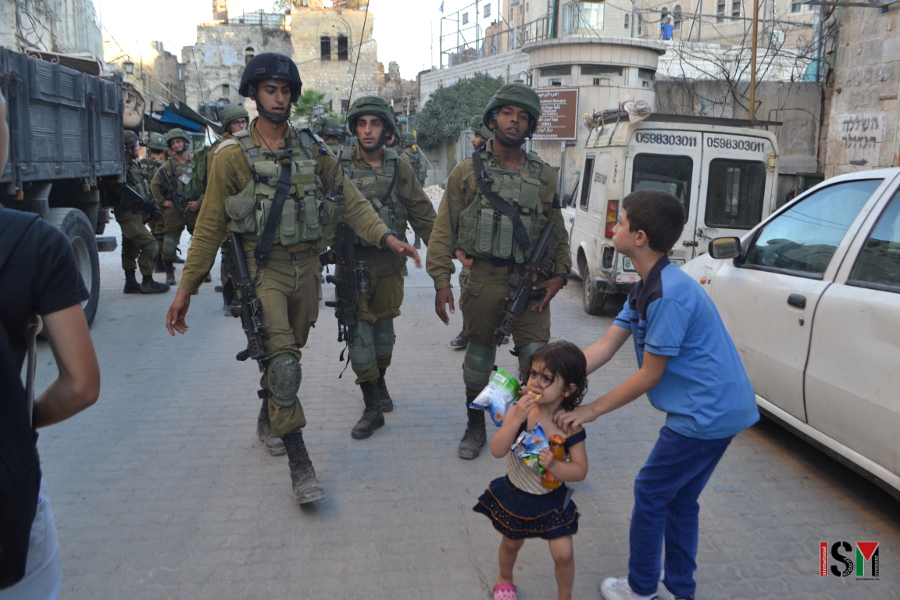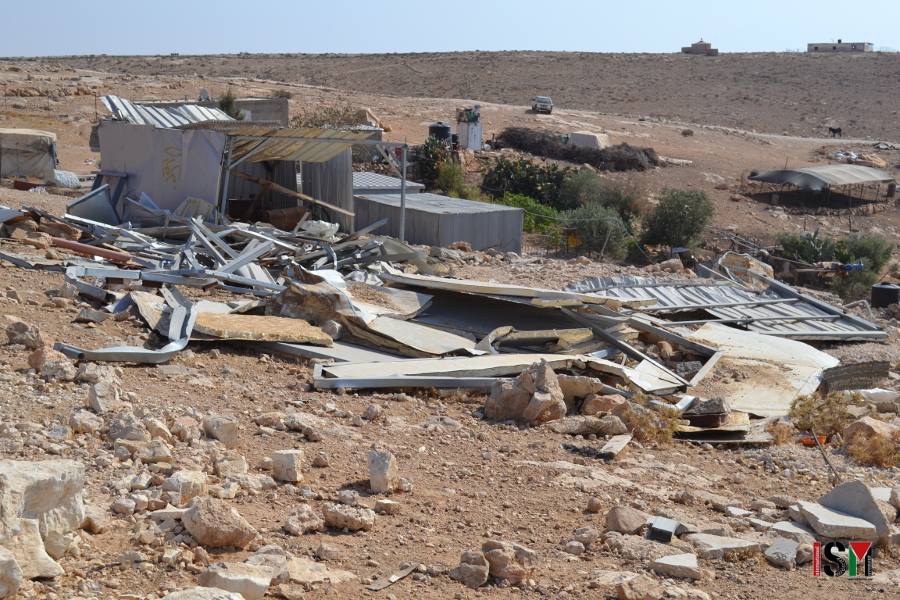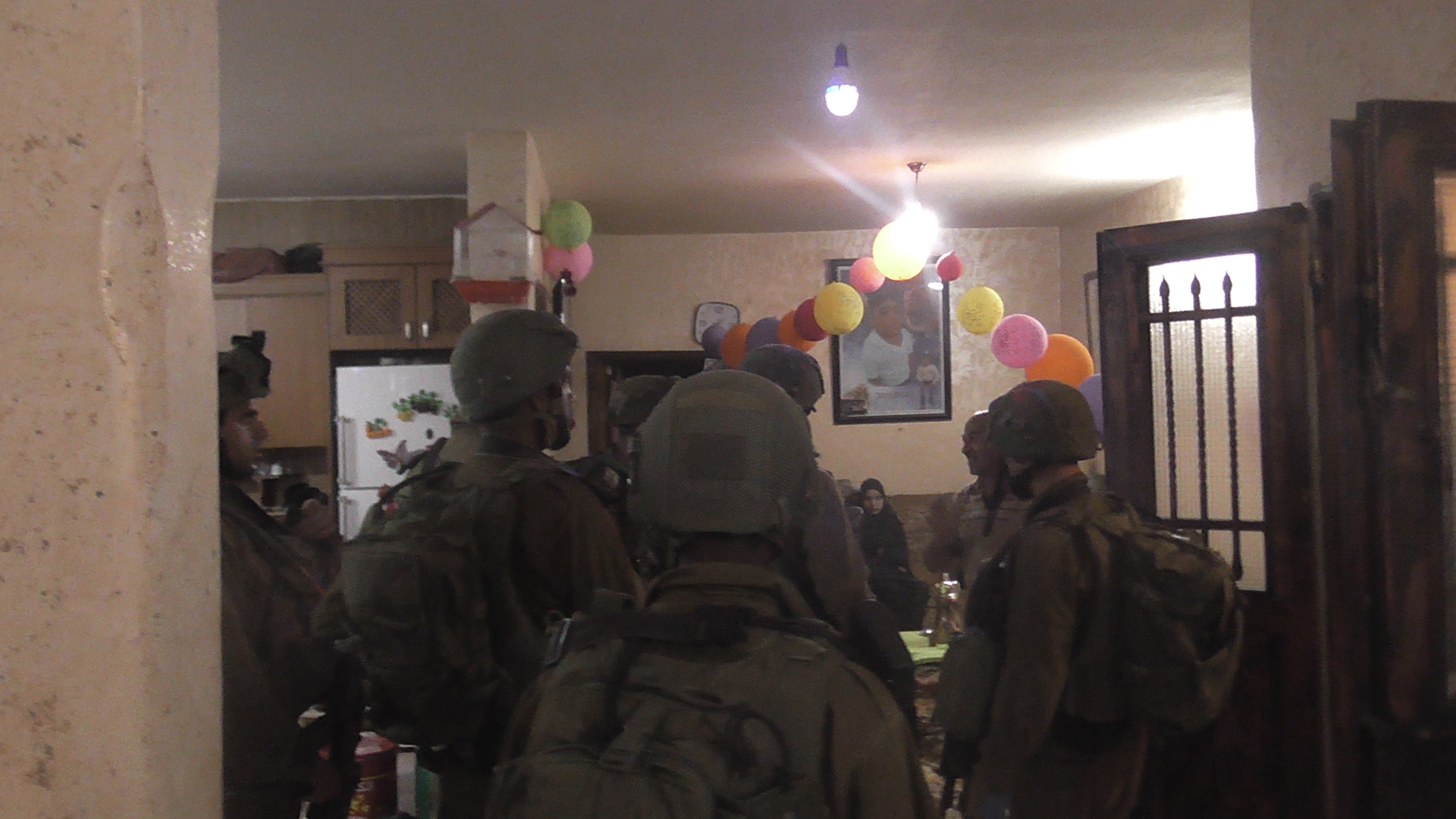Tag: Hebron
-
Three children arrested in occupied Hebron
23rd August 2017 | International Solidarity Movement, al-Khalil team | Hebron, occupied Palestine Three underage boys, 2 aged 13 and 1 aged 14, were arrested today in occupied Hebron (al-Khalil), the soldiers accusing them of throwing stones. Up to 40 soldiers went out of their military base in Bab al-Baladdbiya, and raided several houses searching…
-
Continued military presence in demolition-threatened Umm Al-Kheir
22nd August 2017 | International Solidarity Movement, al-Khalil team | Um Al-Kheir, occupied Palestine Three young Palestinian men were detained by Israeli occupation forces on Friday the 19th of August. The men, residents of the Bedouin community Um Al-Kheir, were held by soldiers for two hours and forced to sit against the fence bordering up…
-
Israeli forces raid Palestinian home without warrant in occupied Hebron
21st August 2017 | International Solidarity Movement, al-Khalil team | Hebron, occupied Palestine On August 9th Israeli occupation forces invaded a home in occupied al-Khalil (Hebron). The soldiers came in the early hours at 01 am and stayed inside the house for three and a half hours until they left at around 04:30 am. The…



